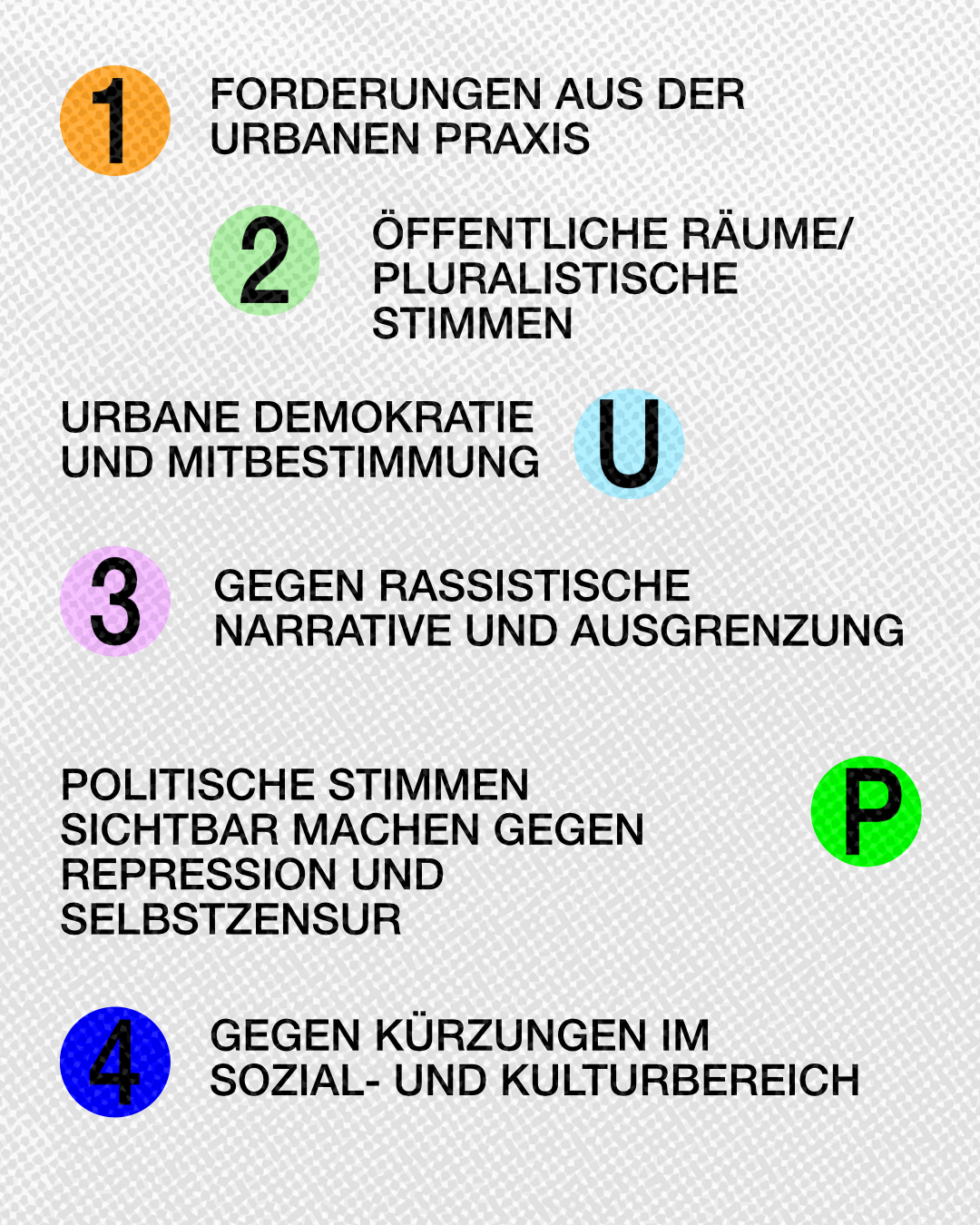Our city needs solidarity instead of politics of fear
No more playing people off against each other and stirring up fear. We need to demand collective, solidarity-based urban development.
Fundamental democratic values are coming under increasing pressure – through polarisation, exclusionary rhetoric and growing acceptance of authoritarian measures. If such developments are ignored, there is a risk of a creeping weakening of key democratic institutions.
With his shocking statements about our cityscape, Friedrich Merz deliberately stages enemy images and fears in line with this rhetoric (https://www.deutschlandfunk.de/friedrich-merz-stadtbild-migration-diskussion-100.html). Merz knows very well what effect his words have: they fuel an ‘us against them’ mentality, polarise our already divided society and legitimise repressive action. Migrants – especially Muslim men – are often subtly made scapegoats in public discourse, while the real social problems remain unaddressed: progressive social cuts, increasing military armament, the systematic restriction of civil society engagement, the chronic underfunding of daycare centres, schools and social institutions, as well as the lack of free spaces and a continuing exclusionary, discriminatory attitude towards cultural diversity.
Cultural cuts – the international context is felt locally
Hate speech, combined with cuts in the cultural sector (https://www.berlinistkultur.de/wp-content/uploads/2025/09/250907_PM_Weniger_wenig_ist_immer_noch_weg-1.pdf), weakens precisely those institutions that protect minorities, promote critical thinking and enable solidarity-based urban development. The political impact on a democratic, diverse city is clear: pluralistic voices are reduced, authoritarian tendencies are strengthened, social self-censorship is encouraged and fear of repression is spread. We do not need extremist parties to weaken democratic structures, because this is already being done in part by these democratic parties themselves.
At the latest since the beginning of the genocide in Gaza (https://www.amnesty.de/pressemitteilung/israel-gaza-genozid-voelkermord-palaestinenser-innen-amnesty-bericht) and the associated domestic political tensions, authoritarian tendencies have become more noticeable in various social and governmental areas.
If discriminatory narratives and restrictive measures go unchallenged, this can lead to greater social tolerance of restrictions on fundamental rights and freedoms. As a result, institutions such as the parliamentary opposition, independent media and civil society organisations lose influence, which increasingly raises the risk of authoritarian developments. Historical experience shows that rhetoric based on fear and enemy stereotypes, combined with state control, undermines the stability of democratic systems.
List of demands Opportunities for collective urban design
For us as an association and intermediary network hub for urban practice, which attempts to mediate between civil society and politics and is committed to solidarity-based urban design, participation and social justice, this means that we must not and cannot remain silent, especially now after such statements by the Chancellor. Brief outrage is not enough. We must take concrete steps to show our true colours, defend democratic structures and actively push back against authoritarian state restructuring. In relation to our goal of promoting a city based on solidarity and collective design, this means:
In the coming weeks, we want to give more visibility to voices from the network and create space for their perspectives, experiences and ideas. Every two weeks, you will now find demands and statements on our channels about opportunities for a collectively designed city. All demands were collected from participants and contributors to the Urban Practice symposium and the open day.
In addition, we are currently drawing up a list of demands to highlight the urgency of urban diversity to politicians. The focus will be on shared visions for a united and fair urban society – a city characterised by diversity, participation and mutual respect.
